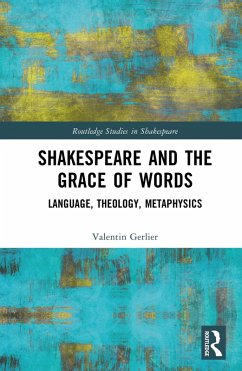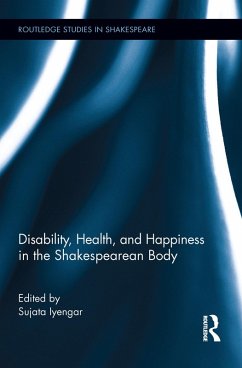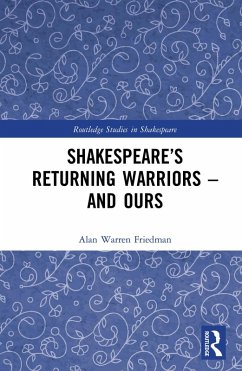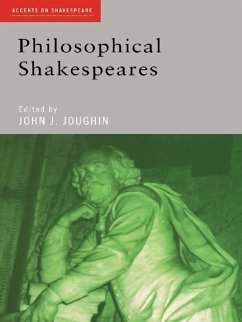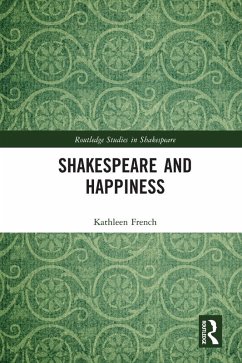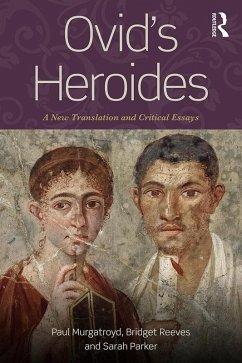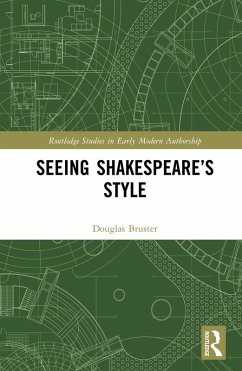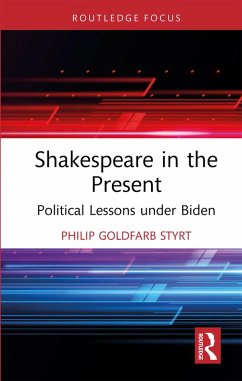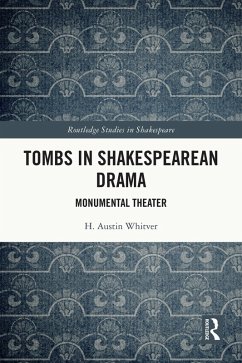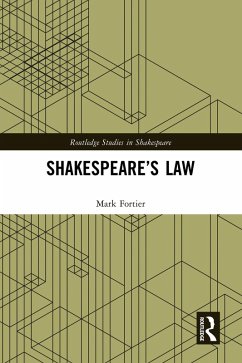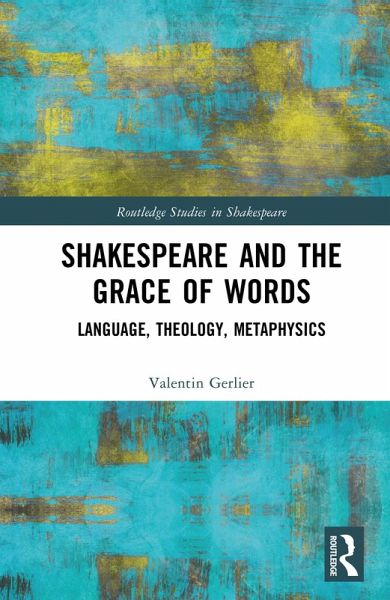
Shakespeare and the Grace of Words (eBook, PDF)
Language, Theology, Metaphysics
Versandkostenfrei!
Sofort per Download lieferbar
39,95 €
inkl. MwSt.
Weitere Ausgaben:

PAYBACK Punkte
20 °P sammeln!
Crossing the boundaries between literature, philosophy and theology, Shakespeare and the Grace of Words pioneers a reading strategy that approaches language as grounded in praise; that is, as affirmation and articulation of the goodness of Being. Offering a metaphysically astute theology of language grounded in the thought of Renaissance theologian Nicholas of Cusa, as well as readings of Shakespeare that instantiate and complement its approach, this book shows that language in which the divine gift of Being is received, apprehended and expressed, even amidst darkness and despair, is language ...
Crossing the boundaries between literature, philosophy and theology, Shakespeare and the Grace of Words pioneers a reading strategy that approaches language as grounded in praise; that is, as affirmation and articulation of the goodness of Being. Offering a metaphysically astute theology of language grounded in the thought of Renaissance theologian Nicholas of Cusa, as well as readings of Shakespeare that instantiate and complement its approach, this book shows that language in which the divine gift of Being is received, apprehended and expressed, even amidst darkness and despair, is language that can renew our relationship with one another and with the things and beings of the world. Shakespeare and the Grace of Words aims to engage the reader in detailed, performative close readings while exploring the metaphysical and theological contours of Shakespeare's art-as a venture into a poetic illumination of the deep grammar of the real.
Dieser Download kann aus rechtlichen Gründen nur mit Rechnungsadresse in A, B, BG, CY, CZ, D, DK, EW, E, FIN, F, GR, HR, H, IRL, I, LT, L, LR, M, NL, PL, P, R, S, SLO, SK ausgeliefert werden.




